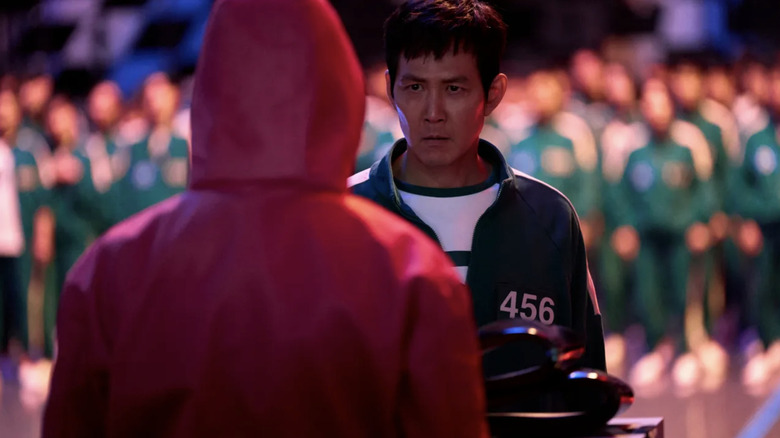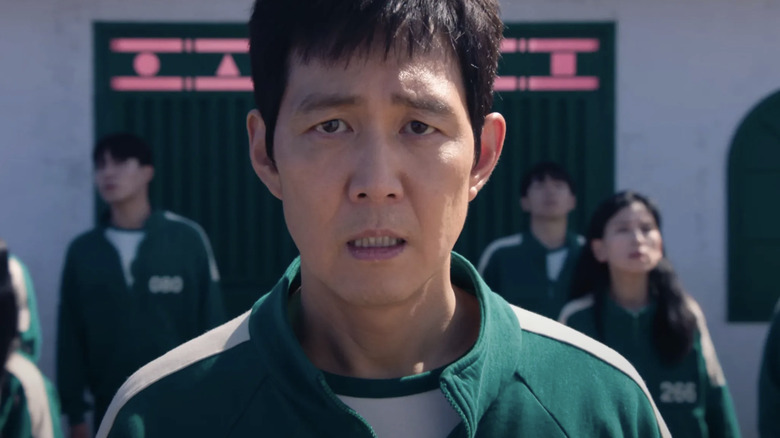
This article contains massive spoilers for “Squid Game” season 2.
The concept behind “Squid Game” is simple: 456 players currently struggling to survive in financial ruin are rounded up into a competition where they play popular schoolyard games from childhood to the death, and the last person standing walks away with 45.6 billion won, or roughly $32 million depending on the current exchange rate. Once players have agreed to play, they’re coming out a winner or they’re leaving in a body bag. Morbid and dystopian, sure, but it’s certainly not difficult to wrap your head around. While plenty of aspects of “Squid Game” season 1 have carried over into the second season, show creator Hwang Dong-hyuk has added a few new wrinkles into the games, not unlike a malevolent President Snow in “The Hunger Games: Catching Fire.”
After Seong Gi-hun (Lee Jung-jae) won the games last season, the overwhelming guilt he felt having survived while 455 others perished radicalized him to put an end to the games for good, inspiring him to re-enter and take things down from within. However, he realizes very quickly that this year’s games are operating a little differently — after each game, players can now vote to split the money and run or continue playing in the hopes the bodies pile up and the golden piggy bank gets a little bit fuller.
It was one thing when it was every person for themself, it’s another thing when half the room has the option to leave and publicly votes to put your life at risk. This seemingly democratic addition to the game helps to deepen the social commentary of the original series; the elite consistently pit the poor against one another but now that the players are voting whether or not to continue playing, factions will be made and they’ll focus their ire against one another directly instead of remembering who the true enemy is.
Voting like your life depends on it because it does
“Squid Game” is not the first (nor will it be the last) story to focus on players volunteering or forced to play horrific games, but the expansion of a voting element makes the story hit even closer to home than season 1 — especially for the Americans who will be tuning in after the most recent presidential election. The contestants of these titular games are literally voting like their lives depend on it, but everyone voting has been pushed to the brink. This is a group of horrified, traumatized, exhausted, borderline starving people with debt hanging over their heads. Those who want to leave recognize no dollar amount is worth their life, but that can’t be said for everyone.
Some are fueled by greed, others by feeling as if they’ve already made it this far and shouldn’t leave with a bigger payday, plenty have been corrupted by the evil of the games, but some are just plain scared. As easy as it is to demonize the players who are voting against their best interests, to act as if all of them are nothing more than avaricious, bloodthirsty monsters is wildly inaccurate. The true villains here are the people who put them in these positions in the first place. Watching the voting take place after each game is harrowing, not only because we’re witnessing the communal nature of a microcosm of humanity disintegrate before our very eyes, but because we can even empathize with those willing to vote in a way that puts them in the direct path of material harm, still clinging onto the hope that maybe this vote will be the one that brings them closer to a successful life. If only it were that easy.
“Squid Game” season 2 is now streaming on Netflix.



Leave a Reply